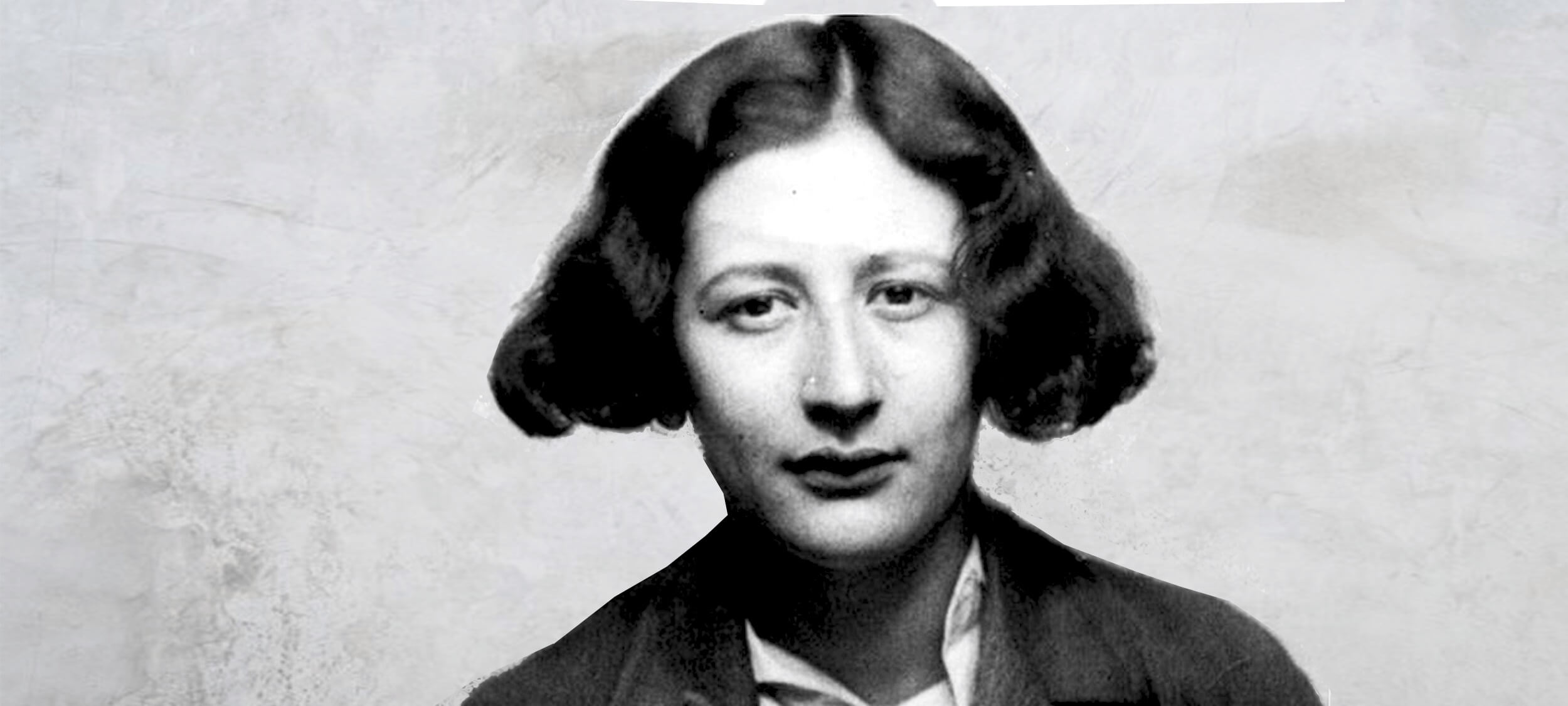
Philosophy had a big moment in 20th century Europe. Christian mysticism? Not so much.
Meet Simone Weil (1909—1943) – French philosopher, political activist, Christian mystic and enfant terrible. Described by John Berger as a “heretical theologian”, Albert Camus as “the only great spirit of our times”, and André Weil (her brother) as “the greatest pain in the arse for rectors and school directors”, Weil was – and remains – one of philosophy’s more divisive characters
Uprootedness
According to Weil, post-World War II France was adrift in a deep malaise she called uprootedness. She argued France’s lack of connectedness to its past, its land, and its community had culminated in its defeat by Germany. Her solution? To find spirituality in work.
This would look different in city and country. In urban areas, treating uprootedness meant finding a motivation for work other than money.
Weil admitted that for low income and unemployed adults in war ravaged France, this would be impossible. Instead, she focused on their children. Reviving the original Tour de France, encouraging apprenticeships, and bringing joy back into study were her recommendations. This way, work could be intriguing and compelling. Even “lit up by poetry”.
For those in the country, uprootedness looked like boredom and an indifference to the land. Optional studies of science, religion, more apprenticeships and cultivating a strong need to own land was essential. To remember the water cycle, photosynthesis and Biblical shepherds while working could only invoke awe, Weil surmised. Even the fatigue of labour would turn poetic.
Her vision for reform extended to French colonialism. This was a source of deep shame for Weil, admitting that she could not meet “an Indochinese person, an Algerian, a Moroccan, without wanting to ask his forgiveness”. She saw uprootedness most acutely in those whose homelands had been invaded. It was also a clear example of the cyclical nature of uprootedness: for the fiercest invaders were uprooted people uprooting others.
Attention over will
The spirituality of academic work was just as important to Weil. In practice, this looked like attention. She defined attention as the capacity to hold different ideas without judgement. In doing so, the student would be able to engage with ideas and slowly land on an answer.
She argued that when a student is motivated by good grades or social ranking, they arrest their development of attention and lose all joy in learning. Instead, they pounce on any semblance of answer or solution, even if half-formed or incorrect, to seem impressive. Social media, anyone?
According to Weil, true knowledge could not be willed. Instead, the student should put their efforts into making sure they paid attention when it arrived.
Weil believed humanity’s search for truth was their search for nearness to God or Christ. If God or Christ was the source of ‘Truth’, every new piece of knowledge or fact learned would refer to them. Therefore, in each student’s instance of unmixed attention – to a geometry problem, a line of poetry, or a cry for help from someone in need – was an opportunity for spiritual transformation.
This detachment from social mores and movement away from the ego characterised her mysticism. It makes a lot of sense then, that Weil considered the height of attention to be prayer.
Obligations over rights
Weil believed that justice was concerned with obligations, not rights. One of her criticisms of political parties lay in their language of rights, calling it “a shrill nagging of claims and counter-claims”.
Justice, for Weil, consisted of making sure no harm is done to one another. Weil asserted that when the man who is hurt cries ‘why are you hurting me?’ he invokes the spirit of love and attention. When the second man cries ‘why has he got more than I have?’ his due becomes conditional on power and demand.
The obligation of justice, Weil noted, is fundamentally unconditional. It is eternal and based upon a duty to the very nature of humanity. In a sense, what Weil is describing is the Golden Rule, found in every major religious tradition and every strand of moral philosophy – to treat others as you would like to be treated.
Ethics in your inbox.
Get the latest inspiration, intelligence, events & more.
By signing up you agree to our privacy policy
You might be interested in…
Explainer
Relationships
Ethics Explainer: Respect
Opinion + Analysis
Health + Wellbeing, Relationships
Ask me tell me: Why women think it’s ok to lie about contraception
Opinion + Analysis
Health + Wellbeing, Relationships
How to pick a good friend
Opinion + Analysis
Health + Wellbeing, Relationships, Science + Technology




